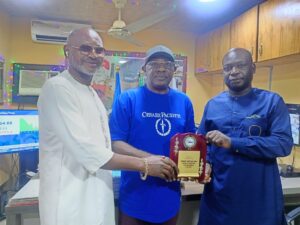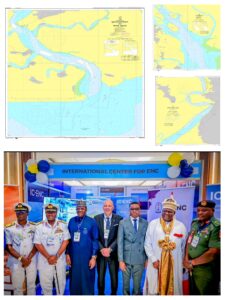NCC Opens Customer Service Station At Abuja Airport

Share this Post
In the arrivals area of the Nnamdi Azikiwe International Airport in Abuja, the Nigerian Communications Commission (NCC) on Wednesday opened a telecom consumer help, resolution, and inquiries (Telcare) desk.

The introduction took place at the NCC’s Communications & Digital Economy Complex in Abuja as part of the 2023 World Consumer Rights event with the theme “Empowering consumers through clean energy transition.”
Umar Danbatta, Executive Vice Chairman/Chief Executive Officer of NCC, said during the launch on Wednesday that in addition to the Telcare desk in Abuja, the commission wants to establish comparable desks at key places throughout the nation to offer information to telecom consumers.
Mr. Danbatta explained that the telcare desk serves as an additional platform to receive and facilitate the resolution of consumer complaints, provide a means through which consumers and citizens can inquire about consumer issues, and serve as a platform for advocacy on any thematic consumer issue. He was represented by Adeleke Adewolu, the executive commissioner (Stakeholder Management).
The commission’s Consumer Affairs Bureau (CAB), he continued, will inform telecom users about these initiatives to improve the environment for all people.
The CAB will carry this out as part of its responsibility for consumer education, with a large portion of this effort devoted to giving consumers knowledge that will enable them to prosper in a society that has embraced digital finance.
“Through its outreach programmes, which have continued to re-tool to reflect existing realities and trends, the CAB will use its consumer-centric initiatives such as the Telecom Consumer Parliament (TCP), Telecom Consumer Town Hall on Radio (TCTHR), Telecom Consumer Conversations (TCC) as well as social media platforms and Consumer Portal to sensitize consumers on how renewable energy benefits them and their role in achieving industry transition to it in the interest of the environment.
“The CAB will develop and produce various consumer education materials such as Flexi and Roll-up Banners, and Handbills, and update its Consumer Handbook to include the message about renewable energy,” he said.
According to him, all around the world, telecom companies are among the biggest energy users as a result of the stiff industry competition which prompts them to serve their consumers by providing higher-speed networks.
“With the rising utility costs, it is critical for companies to reconsider the sustainability of their operations by lowering the operational impact on the environment. This is more so because it has been found that implementing energy efficiency measures could potentially reduce the operating costs of telcos by up to 20 per cent,” he said.
He noted that some of these energy-efficiency measures include the redesign of the Radio Access Networks (RAN) of Base Stations which were initially built to maximise connectivity.
“More than 75 per cent of the time, the radio base station resources remain unused because of the hardware components activated at all times to transmit system information and synchronisation and reference signals.
“Therefore, to avoid waste heat, some of 5G’s newest RAN is equipped with an energy-saving measure allowing for the automatic switching of components. Some other energy efficiency measures can also include the use of renewable energy sources (hydrogen, wind, solar etc.) to supply the energy needed,” he said.









